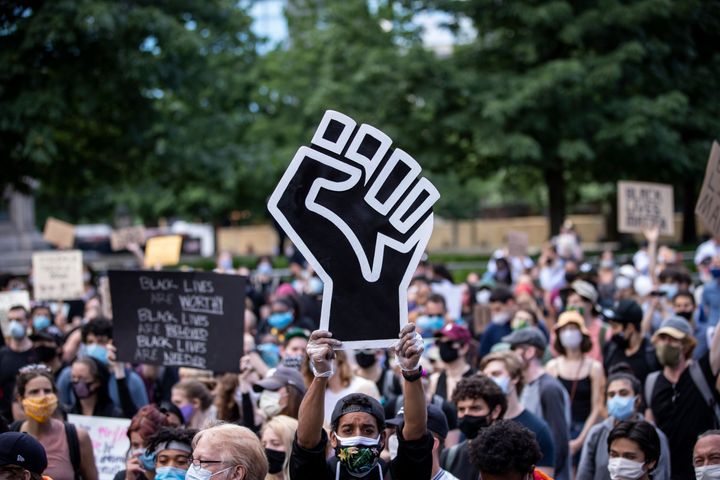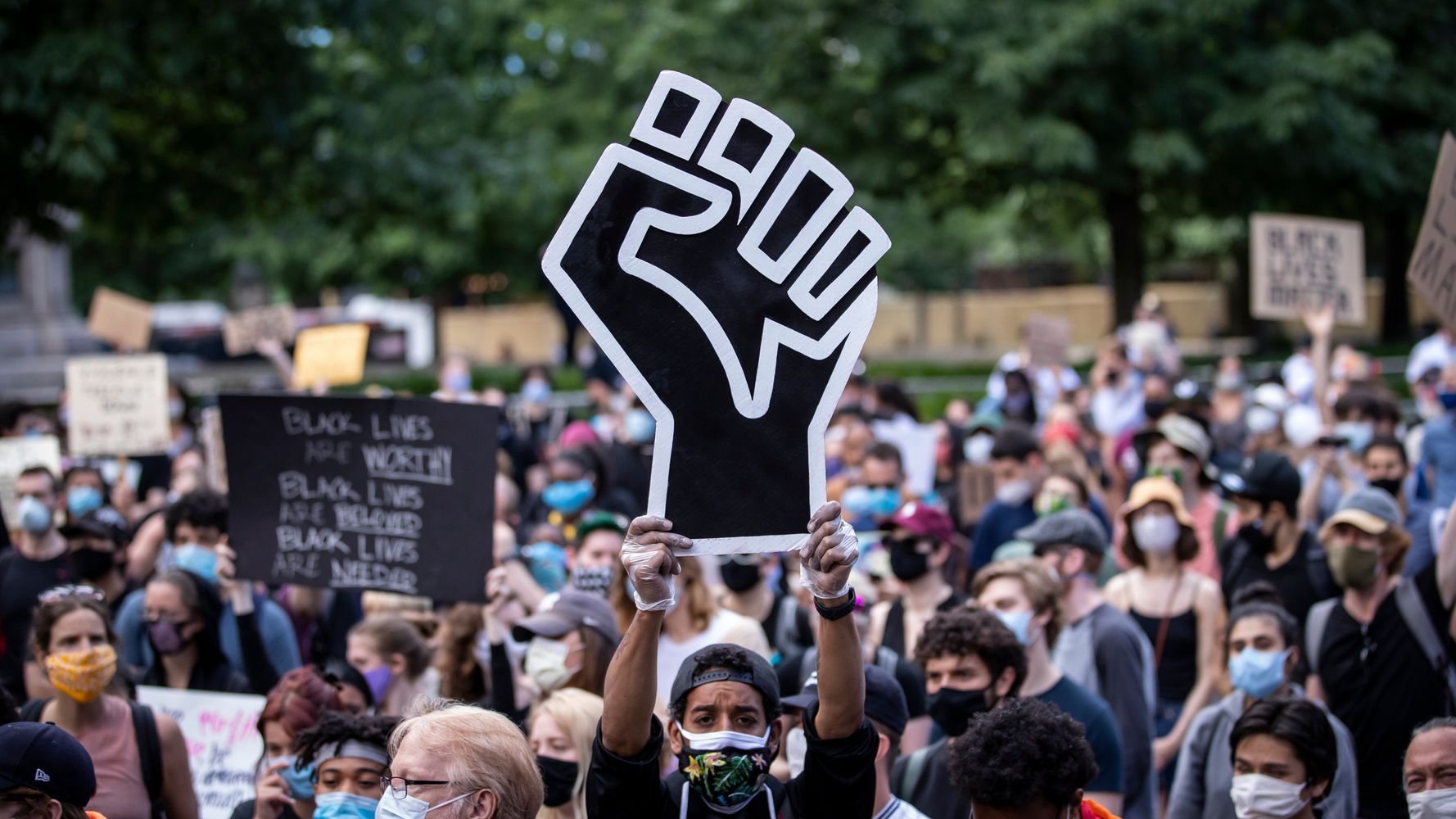[ad_1]
In mental health training and treatment, examining the impact of racism on brains and bodies is largely uncharted territory. And while, in recent years, clinicians who advocate for the study of race-based trauma have made strides in promoting this work, most mental health programs still do not offer official training around racial trauma — a debilitating effect of racism and discrimination.
Racial trauma comprises the mental and physical effects and consequences that Black, indigenous and people of color experience after being exposed to racism. It does not only occur when a person directly experiences racism; it is also a vicarious phenomenon that can be passed through generations.
“The piece about racial trauma that is really unique is the intergenerational impact,” said Maryam Jernigan-Noesi, a psychologist who studied at Boston College’s Institute for the Study and Promotion of Race and Culture. “So it’s not just me and my lifetime and what I’ve experienced — it’s the stories you heard from family members, it’s witnessing that of colleagues or peers, and now with social media and online mechanisms of folks sharing videos, it’s also witnessing things that you may not experience directly.”
As issues related to race and equality continue to spark self-reflection among non-Black people, the phrase “racial trauma” is being invoked more frequently, and becoming an even more necessary official treatment area in the mental health field.
In order for Black people to address their experiences and ultimately work toward healing, racial trauma needs to be acknowledged and implemented into mental health treatment trainings — because, as the experts we spoke to emphasized, racial trauma has its own set of challenges and effects for victims.
Racial trauma creates irregular sleep patterns.
Within her own mental health practice, Lillian Comas-Diaz, a Washington, D.C.-based clinical psychologist specializing in trauma and multicultural issues, said that she has a number of patients who are coping with fatigue as a result of racial trauma.
“Sleep is a psychological issue and also a physiological issue,” Comas-Diaz said. “It becomes a constant source of even more stress because when you don’t sleep well, you worry more — and that enforces this cycle.”
She noted that sleep issues like nightmares, night terrors and insomnia contribute to the inability to sleep for those who have gone through an immense amount of racism or discrimination.
It results in over- or under-consumption of food.
The term “comfort food” exists for a reason. Often times, when people are feeling down, they reach for certain snacks to try to bring their spirits up — the same goes for people who are trying to cope with racial trauma.
“For some folks, they may find they are eating more. There is research that suggests certain foods kind of trigger the responses in our bodies that improve our mood — things like sweets and carbohydrates. So there is a way in which we can associate that over time,” Jernigan-Noesi said.
She also noted that at the other end of the spectrum, some people don’t eat as much because they are so impacted by their racial trauma. The overwhelming stress they feel results in a lack of physical care for themselves, which directly impacts their food intake.

Racial trauma is triggered through vicarious experiences, too.
A person doesn’t need to be present during a disturbing event in order to be affected by it. By being exposed to videos of police brutality or clips of racist encounters on social media and on the news, people are forced to live vicariously through instances of racism and discrimination. It’s inescapable. And for sufferers of racial trauma, the constant reexposure to racism results in additional levels of stress and unexpected exposure to triggers.
“Differing from many other kinds of stress is vicarious racial trauma, which actually today we are witnessing due to technology,” Comas-Diaz said. “It really adds another layer of trauma for people of color — the vicarious aspect of racial trauma is affecting many, many people.”
Anyone who watches disturbing video footage that is omnipresent online can be subject to vicarious racial trauma — not just those who have experienced it themselves, but those witnessing it through a screen.
Racial trauma causes an increase in the stress hormone cortisol.
According to Comas-Diaz, those suffering from racial trauma, whether directly or vicariously, experience an increase in the stress hormone cortisol. When a person is dealing with large amounts of stress, the body releases increased amounts of the hormone as a result.
“Even though cortisol can help us deal with challenges — particularly a survivalist kind of thing — a constant volume of cortisol is not good and is actually not healthy,” Comas-Diaz said.
She noted that an influx in cortisol results in weight gain, slowed physical healing and muscle weakness, as well as many other health problems. Furthermore, a stress response also prompts a higher heart rate — and studies show that stress may heighten risks associated with cardiovascular disease.
It generates increased symptoms related to anxiety, depression and hypervigilance.
When looking at racial health disparities, experiences of discrimination that lead to wear and tear on the body can result not only in certain chronic illnesses that are prevalent within the Black community, but can also lead to diagnosable mental health concerns like depression and anxiety, Jernigan-Noesi said.
“Significant experiences of racial discrimination have negative consequences with regard to mental health,” she explained. “People have reported things like increased experiences of anxiety, symptoms that are related to depression and increased hypervigilance.”
“Significant experiences of racial discrimination have negative consequences with regard to mental health.”
– Maryam Jernigan-Noesi
Jernigan-Noesi added that, particularly in light of recent events like the senseless murder of Ahmaud Arbery when he was out for a jog, Black people are forced to be hypervigilant regarding their whereabouts. The Black community is faced with the reminder racism is associated with potential physical threats and lack of safety.
The human body registers racist encounters as experiences of toxic stress.
“When we start looking at racial trauma and, in particular, cumulative racial trauma, the idea is that racism and racial discrimination is usually not a singular experience for many folks,” Jernigan-Noesi said.
“And those experiences are rarely resolved,” she continued. “So, we may survive through them, but when the next experience comes along it can be a reminder or a trigger of previous experiences that we have, such that our body is also registering these as experiences of stress. And when our bodies are stressed out, what ends up happening is, over time, prolonged stressors can lead to, in an extreme level, what we refer to as toxic stress.”
“For Black people in particular, racial stress is something that happens throughout their life course.”
– Lillian Comas-Diaz
The mental and physical consequences of toxic stress largely result in overactivity in the parts of the brain that are associated with fear, anxiety or impulse response. But, Jernigan-Noesi added, there has also been research indicating that toxic stress can also result in underactivity, which affects people’s reasoning, behavior and planning.
“At the same time that you have this heightened sense of awareness that may be registering in the body, it disrupts your ability to go about your day,” Jernigan-Noesi said. “So if you think about all of that happening in the body — you’re not able to really return to a peaceful state. Racism is something that is pervasive.”
It shapes you before you’re even born.
“We are exposed to different kinds of racism historically, collectively, institutionally, systemically, interpersonally and generationally — we inherit a lot of this,” Comas-Diaz said. “For Black people in particular, racial stress is something that happens throughout their life course. And for many, it sadly happens before birth — this is the intergenerational effects of racial trauma. The children of parents who have been exposed to racial trauma become more sensitive to it.”
In some cases, studies show, parents who have gone through trauma resulting in epigenetic alterations — which are inheritable changes in gene expression — can pass those changes onto their children. Even if their child does not have direct exposure to racial trauma, the child will have increased sensitivity to stories of discrimination, witnessing racial trauma and systematic oppression.
In other words, it’s a vicious, nonstop cycle.
If you or someone you know needs help, call 1-800-273-8255 for the National Suicide Prevention Lifeline. You can also text HOME to 741-741 for free, 24-hour support from the Crisis Text Line. Outside of the U.S., please visit the International Association for Suicide Prevention for a database of resources.
[ad_2]
Source link

